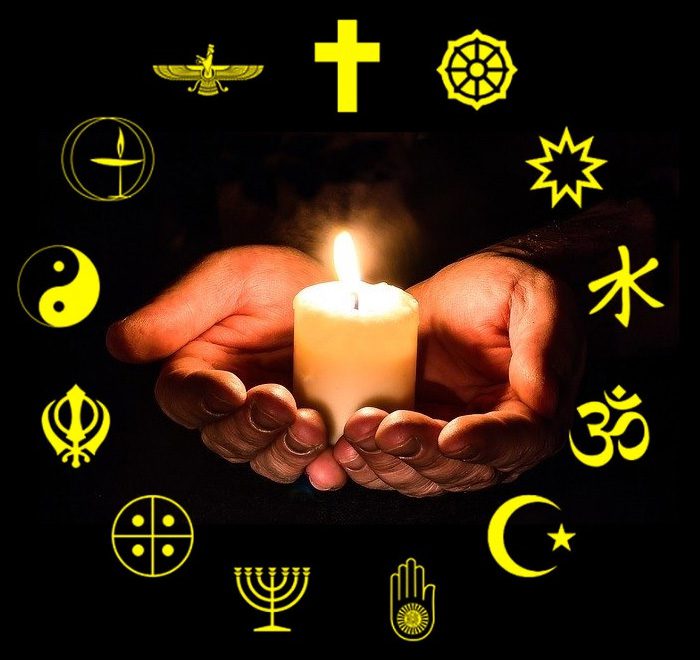Spirituality
I’ve often heard the phrase ‘There are three things you should never talk about: religion, politics and money’ and if you’re looking to avoid confrontation due to their sensitive nature and the number of opposing views, then perhaps this is good advice.
 However I’m going to be brave and broach the subject of religion and spirituality in this blog, because I’m very aware that it has a significant part to play in many people’s lives and can come up within the discourse of counselling sessions from time to time for various reasons, and I should expect this because according to the latest figures from Pewresearch.org, 84% of the world’s population say that they ascribe to a religious group.
However I’m going to be brave and broach the subject of religion and spirituality in this blog, because I’m very aware that it has a significant part to play in many people’s lives and can come up within the discourse of counselling sessions from time to time for various reasons, and I should expect this because according to the latest figures from Pewresearch.org, 84% of the world’s population say that they ascribe to a religious group.
‘Spirituality and religion are critical sources of strength for many clients, are the bedrock for finding meaning in life, and can be instrumental in promoting healing and well-being. There is growing empirical evidence that our spiritual values and behaviours can promote physical and psychological well-being.’ 1.
This is a statement I read in an article recently (see reference below) and through my own life experience I have come to agree with it. In fact, spirituality and religion also offers guidance for determining morals and values and can form the basis for decision-making. When carrying out corporate spiritual practices, rituals or attending services of prayer or worship it can create a sense of belonging and bring us into supportive relationships with others.
However, spirituality is not necessarily simply ascribing to a particular religion, for many their spirituality might be ‘a broader sense of connection to nature, the universe, and perhaps a higher power but not necessarily one that is directly identified.’ 2
However, whilst it can be argued that there is much to be gained from religion and spiritual practices, it can also present a number of difficult issues and create both internal conflict and/or conflict with others. For example, you may have been brought up without a particular religion and yet start to wonder why others believe in a deity – is there something in it? Am I missing out? Or the other extreme of being brought up by parents who justified their extremely strict parenting on the demands of their religion, causing you to despise or at least be wary of religion or spirituality. Perhaps you’re questioning your faith – does God really exist? Why is there suffering in the world? Why aren’t my prayers being answered? Or perhaps you’ve wandered away from adhering to a religion or spiritual practice and questioning whether or how you could return. Maybe you’re finding it difficult to reconcile your religious beliefs with the culture of the country you live in such as beliefs around different sexualities, contraception, abortion, the status of women etc. Or are you being discriminated against or facing persecution because of your religious beliefs?
Issues of faith and belief can often arise at times of loss – does heaven/paradise/reincarnation exist? What has happened to the soul of my loved one who has passed away? You may have a view of a deity as judgemental and punishing and therefore be anxious over behaviours viewed as sinful. Have you been hurt by members of your religious community and has this made it difficult for you to practice your faith? There can be trauma in being involved in a highly controlling religion or cult and extreme difficulty in trying to leave as this may cause condemnation, rejection or even risk of death.
As you can see from these examples, there are many issues that can crop up surrounding religious beliefs and spiritual practices and it can get very confusing and there may be a lot of hurt that needs to be expressed and tended to.
In another sense, there could be some important questions you have about spirituality that need to be explored, so it may be helpful to consider some of these questions to get you thinking more deeply about your religion or spirituality:
- Is my religion or spirituality something I’ve chosen and follow willingly and wholeheartedly?
- What do I believe? And Is this meeting my spiritual needs?
- Are my religious beliefs or spirituality helping me become more of the person I would like to be?
- Is the way that I live my life consistent with my religion or spirituality?
- Does my religion or spirituality help me understand the meaning of life and death?
- Does my life really have a purpose or meaning?
As you can imagine, some of these questions aren’t always easy to answer and can throw up even more questions. So, if you’re grappling with questions such as these, or are hurting from issues like those described earlier, talking to a counsellor may be a good next step. I can offer support in helping you explore and identify the issues and their root causes, reconcile any discord between religious views and your life, and gain greater self-understanding either within the frame of religious faith or spiritual practices, or apart from it. Your spiritual and religious views will be completely honoured and respected and I will support you in thinking through what you consider to be the best way forward for you.
If you feel you would benefit from this then please do get in touch, it would be a privilege to help.
1. Corey, G. Integrating Spirituality in Counselling Practice, Vistas Online, American Counselling Association Knowledge Centre.
2. Religious Issues, goodtherapy.org.
